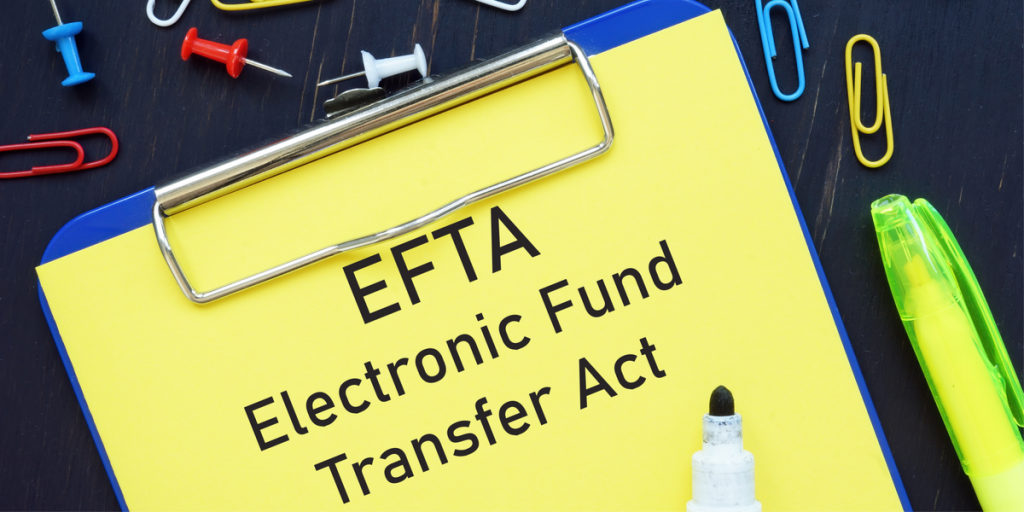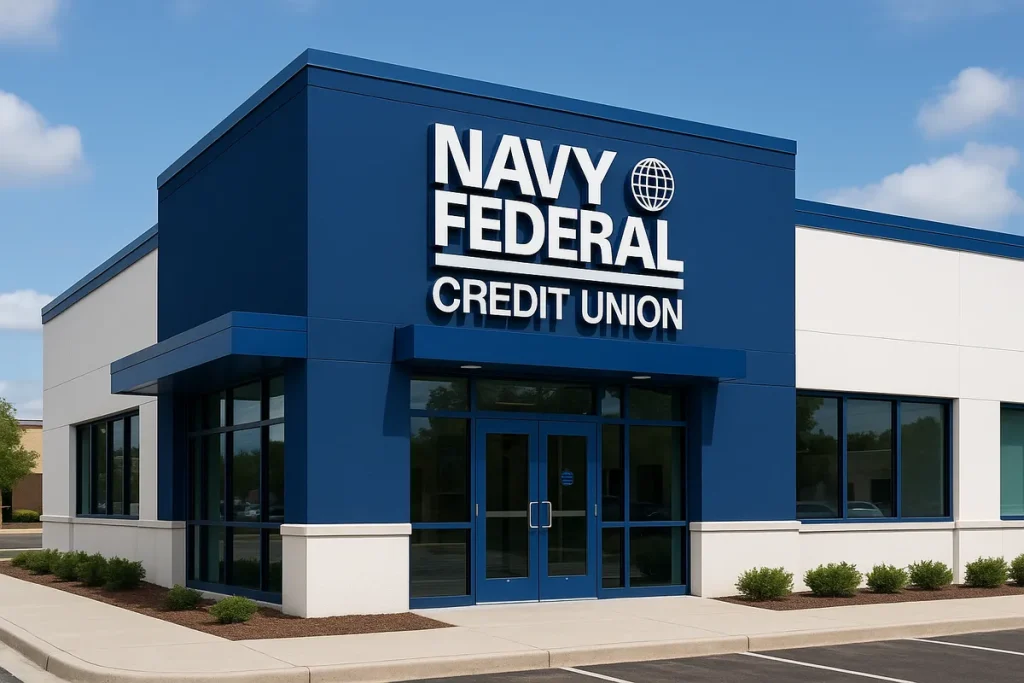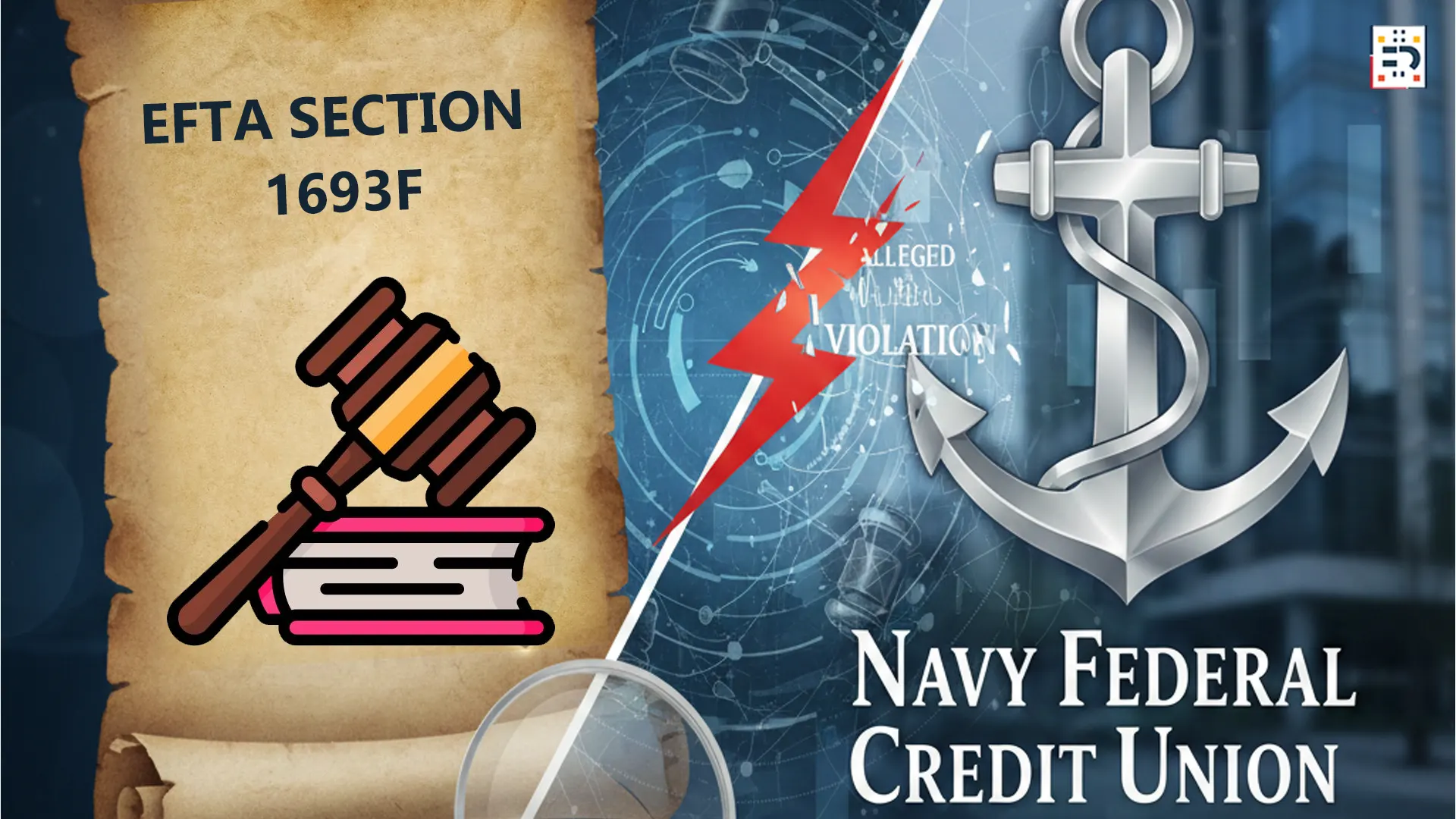EFTA Section 1693f: The Right to an Explanation That Navy Federal Allegedly Violated
Millions of Americans depend on debit cards, ATMs, mobile banking apps, and online transfers every day. When something goes wrong—like an unauthorized debit or a system error—federal law steps in to protect consumers. One of the most important protections is found in EFTA Section 1693f, which grants consumers the right to dispute electronic fund transfer errors and—most importantly—the right to a written explanation of the financial institution’s findings.
But recent consumer reports claim that Navy Federal Credit Union may not have always met these requirements, prompting questions about whether the institution violated the rights outlined in EFTA Section 1693f: The Right to an Explanation That Navy Federal Allegedly Violated.
Below is a fully detailed breakdown of how this law works in the United States and what consumers can do if their rights were violated.

Overview of the Electronic Fund Transfer Act (EFTA) in the United States
Purpose of the EFTA
The Electronic Fund Transfer Act is a U.S. federal consumer protection law that governs:
- Debit card transactions
- ATM withdrawals
- Online transfers
- Direct deposits
- Point-of-sale purchases
- Mobile banking transactions
The law’s official text is available through the U.S. Congress website.
Key U.S. Consumer Banking Protections
The EFTA—implemented through Federal Regulation E—gives American consumers the right to:
- Dispute errors
- Receive provisional credit
- Limit financial loss
- Obtain documentation
- Receive written explanations
The Federal Reserve’s official guidance appears in Regulation E.
Understanding EFTA Section 1693f Under U.S. Federal Law
EFTA Section 1693f describes exactly how banks must respond once a consumer disputes a transaction.
U.S. Error Resolution Requirements
The law requires banks to:
- Start an investigation promptly
- Finish within federally mandated time limits
- Provide a written explanation
- Offer supporting documentation
These rules are summarized by the Consumer Financial Protection Bureau.
Mandatory Bank Responsibilities
Banks and credit unions must:
- Investigate in good faith
- Consider all available evidence
- Contact merchants when needed
- Issue written results
Timeframes Required Under U.S. Law
- 10 business days for most accounts
- 20 business days for new accounts
- Up to 45 days if provisional credit is issued

Written Explanations and Documents
This is the core of EFTA Section 1693f: The Right to an Explanation That Navy Federal Allegedly Violated.
Banks MUST:
- Provide a written explanation
- Provide copies of all documents they relied upon
Failing to do so is a direct violation of federal law.
The U.S. Consumer Right to an Explanation
Why This Right Matters
The written explanation requirement:
- Creates legal accountability
- Ensures fairness
- Allows consumers to appeal decisions
- Prevents arbitrary denials
How Missing Explanations Harm Americans
When banks skip this step, consumers may:
- Lose disputed funds
- Be unable to challenge the decision
- Face overdrafts and fees
- Have difficulty pursuing legal action
Allegations Against Navy Federal Credit Union
Reported Violations of Federal Rules
Multiple U.S. consumers have claimed that Navy Federal denied disputes without the required explanations.
Claims Connected to Section 1693f Violations
Failure to Provide Required Written Notices
Some consumers say they were never told why their disputes were denied.
Failure to Provide Supporting Evidence
U.S. law requires banks to give consumers documents used in their decision. Navy Federal has been accused of refusing to do so—another possible violation of EFTA Section 1693f: The Right to an Explanation That Navy Federal Allegedly Violated.
How Section 1693f Works for U.S. Disputed Transactions
Definition of “Electronic Fund Transfer Error”
Errors include:
- Unauthorized charges
- Wrong amounts
- Duplicate charges
- ATM malfunctions
- Missing deposits
- System or network errors
Steps U.S. Consumers Must Take
To activate EFTA protections, consumers must:
- Report the error within 60 days
- Provide details
- Submit written confirmation if required
Once this happens, the bank MUST follow federal guidelines.

Navy Federal’s Legal Duties Under U.S. Federal Law
Federal Investigation Procedures
Navy Federal must:
- Examine transaction logs
- Verify merchant data
- Consider consumer evidence
- Act fairly and transparently
Notification Requirements
Under Regulation E, Navy Federal must provide:
- A written explanation
- Supporting documents
Provisional Credits
If an investigation is extended, Navy Federal must provide temporary credits.
What U.S. Consumers Can Do if Their Rights Are Violated
File a Complaint With the CFPB
You can file a formal complaint through the Consumer Financial Protection Bureau complaint portal.
Seek Legal Representation
Consumer protection attorneys can assist with EFTA violations.
Request Official Documentation
U.S. consumers have the right to request all documentation Navy Federal relied on.
How to Write a U.S. EFTA Dispute Letter
Required Information
Include:
- Dates
- Transaction details
- Reason for dispute
- Request for evidence
- Citation of EFTA Section 1693f
Sample Structure
- State the disputed transaction
- Explain why it is incorrect
- Cite federal law
- Request an investigation
- Request documentation
- Sign & date
Case Studies in U.S. EFTA Enforcement
Successful Resolutions
Consumers have recovered funds after appealing poorly processed disputes.
Common Bank Failures
- Denials without explanations
- Not providing documentation
- Poor-quality investigations
- Failure to issue provisional credits

Common U.S. Consumer Errors
Missing Federal Deadlines
After 60 days, protections weaken significantly.
Weak Documentation
Stronger evidence improves the success rate.
Preventing Future Banking Issues
Best Practices
- Enroll in fraud alerts
- Review bank statements often
- Report suspicious activity early
Monitor Digital Transactions
Daily monitoring helps catch issues quickly.
FAQs About EFTA Section 1693f
1. What does EFTA Section 1693f require banks to do?
They must investigate disputes, issue written results, and provide documentation that supports their decision.
2. Does Navy Federal have to provide documents used in the investigation?
Yes. Under the law, all financial institutions must provide supporting evidence upon request.
3. How long does a bank have to investigate a dispute?
Generally 10 business days, or up to 45 days if provisional credit is issued.
4. Can a bank deny my dispute without giving me an explanation?
No. Denials must always be accompanied by a written explanation.
5. What if Navy Federal didn’t investigate properly?
You may file a complaint with the CFPB or seek legal counsel to pursue damages.
6. Do these rules apply to all types of electronic fund transfers?
They apply to most EFTs, including debit card transactions, ATM withdrawals, and online transfers.
EFTA Section 1693f: The Right to an Explanation That Navy Federal Allegedly Violated is one of the most powerful tools U.S. consumers have for protecting themselves from unfair electronic transaction practices. If a financial institution denies a dispute, it must tell you why—and show you the evidence.
Understanding your rights ensures you stay protected, informed, and empowered in the U.S. financial system.
#EFTA #RegulationE #ConsumerRights #NavyFederal #BankingLaw #USFinance #DebitCardFraud #CFPB #ElectronicPayments #ConsumerProtection


